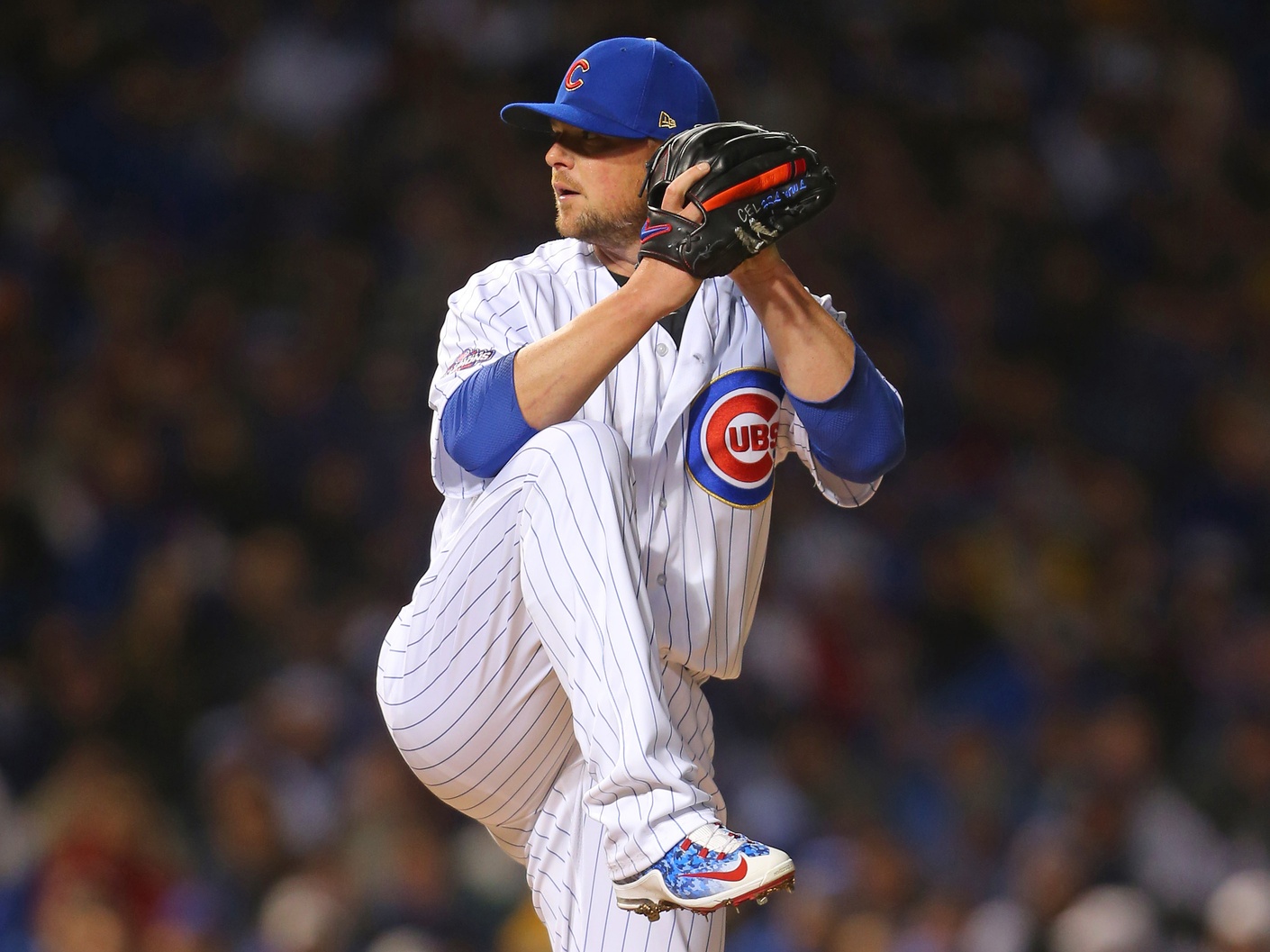When looking at the big picture for the Chicago Cubs moving forward, it’s pretty obvious that they will need to supplement their pitching staff relatively soon. While they have a lot of talented options on the team right now—top-tier starters and quality depth in the bullpen and down on the farm—losing three-fifths of their rotation in the coming offseason is still going to sting.
This pending need opens the door for speculation on how the Cubs will fill the void when John Lackey, Jake Arrieta, and Brett Anderson all hit free agency. Reading the tealeaves, Lackey and Arrieta are almost certainly moving on (and even possibly retiring in Lackey’s case) and Anderson is very much a wait-and-see kind of guy at this point in his career. Even if Mike Montgomery can step in right away, the Cubs will be looking to add a couple of arms.
To help get some more hurlers, it would be far from shocking if the Cubs dipped into their prospect pool and traded a couple of their hard-hitters for a young, cost-controlled arm. Completing that trade is always easier said than done, but the need is real, and there is only so much work you can do in free agency.
With no real #1 or #2 pitching option ready to break onto the scene from the minor leagues, and a self-imposed “soft cap” in terms of payroll (it’s safe to assume the Cubs would like to stay under the luxury tax), acquiring a cheaper option would benefit this team in more ways than one.
The Cubs haven’t even played 10 percent of their season yet, so this is pre-emptive in and of itself, but it would be in their best interests to ride out this year with their current crop of pitchers—as long as everyone is healthy—and then try to complete any rotation-altering trade in the offseason.
Waiting makes sense because the prices in the offseason should be cheaper with more trading partners and more options available via free agency. The aforementioned Arrieta will be available, as will Johnny Cueto (assuming he opts out), Yu Darvish, Alex Cobb, and the less likely Shoehi Otani just to name a few. All of these options should drive prices down.
The Cubs will be in the market for all of those guys, but that shouldn’t limit their need to trade for a younger starter as well. Waiting until the offseason makes even more sense because the Cubs need to be very cost-conscious as their prospect pool, while still good, is diminishing quickly. Ian Happ and Eloy Jimenz are the last two top-flight prospects down on the farm, and at least one of them will have to go to get the kind of quality the Cubs will need on the mound, unless the Cubs want to move Kyle Schwarber or Javier Baez (spoiler alert: they don’t). After Jimenez and/or Happ are gone, the Cubs have far fewer chips in their pocket that they can use to improve the team on the fly.
Also, the Cubs shouldn’t need an additional arm in order to compete for a championship this season, as the top of their rotation is more than capable, like we saw last year. In fact, after the last couple of deep playoff runs Lester, Arrieta, and Hendricks have developed a pretty solid track record on baseball’s biggest stage.
Lester has obviously had a ton of success in the playoffs, having thrown 133.2 innings, allowing 39 earned run for a 2.63 ERA with a 1.032 WHIP. Hendricks has now thrown 34 innings and allowed nine earned runs for a 2.38 ERA with a 1.059 WHIP. And Jake Arrieta has tossed 42 innings, allowing 17 earned runs for a 3.64 ERA and a 1.000 WHIP.
The point is, the Cubs pitching can compete with any team in baseball should they make the playoffs, even if they get middling results from Anderson/Montgomery/Lackey. Losing Arrieta makes them much more vulnerable to the flukiness of the playoffs and there is no guarantee that Lester will be a shutdown pitcher for much longer. He’s certainly capable, but he will start next season at age 34, and performance could dip at any moment.
The way this team is constructed, they are poised to make the playoffs for many years in a row. With a ton of young and talented bats, the biggest obstacle to the Cubs winning the World Series again is the uncertainty of the rotation after 2017. With lower prices and more options in the offseason via free agency and via trade, don’t expect a monster deal at the trade deadline to come to fruition unless something catastrophic happens beforehand.
Lead photo courtesy Dennis Wierzbicki—USA Today Sports
